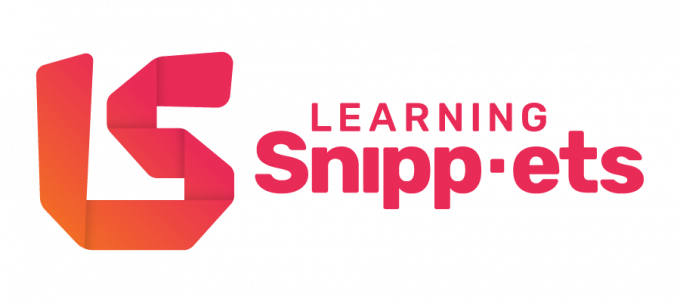
New leaders often face the challenge of helping their team without taking over. It’s tempting to jump in and fix things, especially when you excel in a specific area. However, this “rescuing” behavior can lead to burnout and hinder team growth. While well-intentioned, it can overload leaders and demotivate team members, particularly high performers.
Learn more about how impactful leaders foster growth and empower teams to achieve their objectives independently.
That is such a huge challenge for leaders, particularly new leaders.
I find this conversation comes up all the time. I think first and foremost, it’s just having that awareness as a leader to know, “Right, this is what I’m really good at. This is what I love to do.” And acknowledging or honouring the fact that you got to where you are, in part because of your strength in those areas. But, the next part of that conversation with yourself is to say “And how will it serve this other person working under me on this for me to take over.” Or sometimes we call it, rescuing type of behavior, right?
Where we go, well, I see that I see a team member struggling. I know I’m really good at that. So let me just jump in and help you. There’s a lot of, a lot of people who fall into that trap, I’ll call it. And it’s not because they’re, obviously they’re not doing it out of a place of malice, they’re just doing it out of a place of good intent.
What it can do though is first off, especially for new leaders, can really create a lot of extra workload. I see a lot of new leaders burning out because they’re trying to do all the things plus lead a team at the same time. So it’s sort of gently giving the guidance the person needs, whether it’s clear direction or it’s maybe more of a mentorship type of role that you could take with them, and then acknowledging that you need to step away. So whatever support you need to give them, it could be, you know, information or space or they just need someone to come to and ask for help. You can provide that to them, but also acknowledge, okay that’s their responsibility now. It’s not mine anymore.
Your job as a leader is to help them grow their skill so that they can succeed and grow themselves. That’s what I see the true role of the leader is. It’s not doing the work for them, it’s growing the skills and capacity on your team so that they can succeed beyond you as their leader.
I know, I’ve said this already. But, it really does kind of come down to awareness, right? It’s, especially as new leaders, we feel we can feel very vulnerable in those roles, right?
Where we think, okay I need to make sure that my team succeeds at all costs, because, I need as a leader, I want to look good for the people I report to. And if my team doesn’t look good or doesn’t achieve, then that’s a reflection on me, and it absolutely is. However, are you serving the long term needs of your team and individuals on your team by jumping in and doing the work for them? And are you serving yourself in that as well? And the answer always is no. It’s just being mindful of being able to create that distance and really looking at the needs of the individual to figure out what exactly they need from me right now? What will help them? And stepping away and letting them do what they need to do in order to meet their objectives.
It is tough, but the more you practice it, it’s like any new skill. The more you practice it, it does become easier and more natural over time.
It can be very demotivating, especially for people who are higher performers on the team. You know, I’ve certainly had experiences where I was high performing on the team, but worked for somebody who just always was standing over my shoulder, pointing out the errors. And that was just their way.
They did this with everybody. But it was so frustrating. Because I didn’t feel seen. I didn’t feel like they truly recognized me for what I was bringing to the job and to the organization. And got really, yeah, felt very demotivated in that scenario. So it can affect your, not just your, the people who are there, but then people thinking about leaving or wanting to get switched to another team.
If there’s conflict on the team, that can sometimes be a symptom of that type of behavior as well from the leader. So really paying attention to some of those cues that might pop up, are really helpful in sort of shining more of a light on that type of behavior as well.
Jenn has been immersed in human resources and training for more than 25 years and she’s committed to helping leaders evolve and grow to support successful organizations.
She holds a master’s certificate in organizational development and change from the Schulich School of Business and professional designations in both human resources (CHRL) and training & development (CTDP). She also holds coaching certifications from Brené Brown’s Dare to Lead, Team Coaching International, EQ in Action, Everything DiSC Workplace, Crucial Conversations, and Five Behaviours of Team Development.
Jenn’s career started in HR at the University of Wilfred Laurier in Waterloo, Ontario, then she moved to PriceWaterhouseCooper where she learned, tested, implemented, planned and oversaw hundreds of tools, trainings, courses, assessments, and management interventions. She has empowered more than 5,000 individuals and led more than 475 trainings.
Jenn is also the Subject Matter Expert for two of Dialectic’s new Learning Snippets programs: Leadership 101 and Collaboration 101. These are scenario-based microlearning programs that are designed to equip leaders and team members with proven tools and strategies.
Dialectic helps organizations improve the way people work, learn, and collaborate through person-centred design and the latest in social science.

Does your team struggle with learning new soft skills?
Use our app or upload Snippets to your LMS to build better habits in minutes with scenario-based microlearning.
© 2025 Dialectic. All rights reserved. | Contact Us | Privacy Policy | Terms of Use | AODA Statement
See how easy it is to activate soft skills in your organization. Soft skills training on 3 key topics: DEI, Leadership, and Collaboration.